Consumed by fire: when all you have goes up in flames
Some say the fire started in a sangoma’s house. Others say it was started by a drunk man who fell asleep, but nobody knows for sure. All we do know is that the fire was ruthless; scorching, angry flames leaping from one corrugated iron shack to the next and destroying everything in its path. Within a matter of hours, four people had died, 4,500 homes were destroyed and 15,000 people were left homeless and destitute.
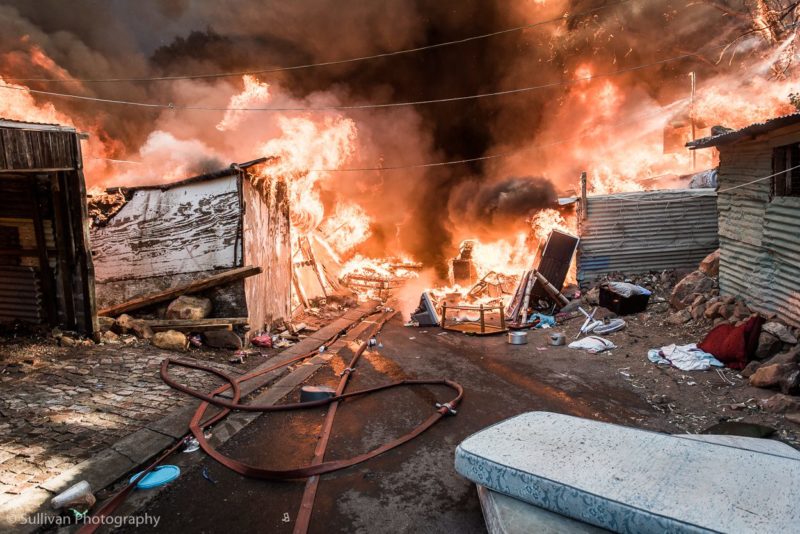
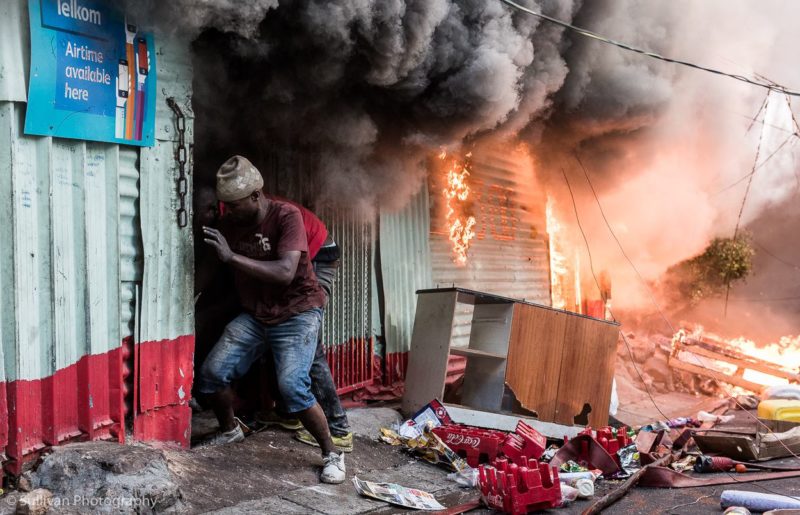
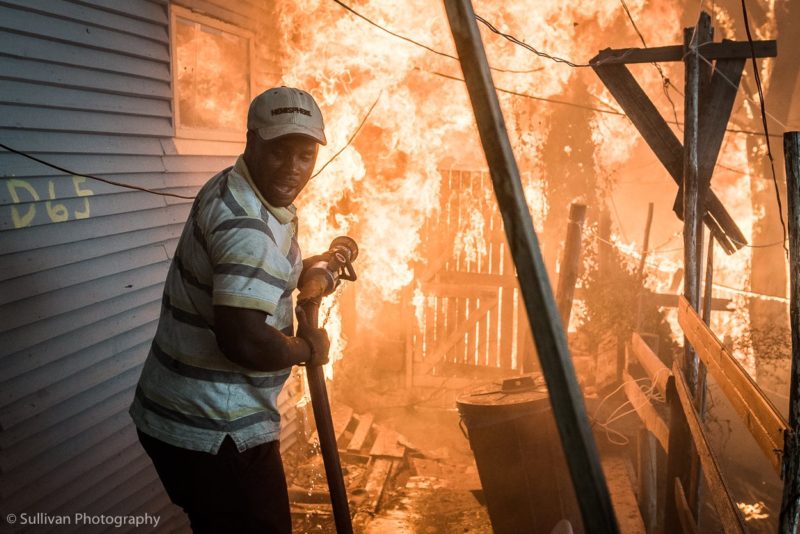
It’s a shock to your system when you see the magnitude of the destruction. I stood in the middle of Dontsa Yakhe, the informal settlement in Imizamu Yethu, Hout Bay, and everywhere I turned it looked like a war zone. Blackened sheets of metal strewn in unnatural heaps, burnt out cars slumped on the side of the road, electricity cables tangled and mangled between heaps of broken glass and melted plastic, and the charred remains of thin trees jutting out from the chaotic rubble. Nothing was left, and it was difficult to imagine how it would ever be rebuilt again.
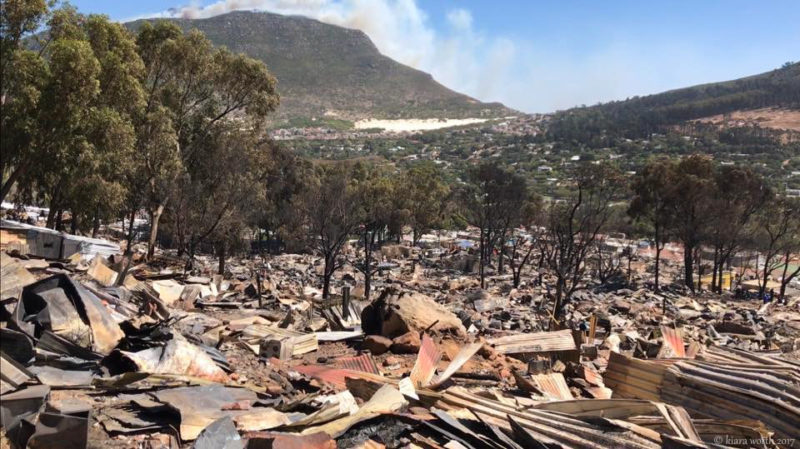
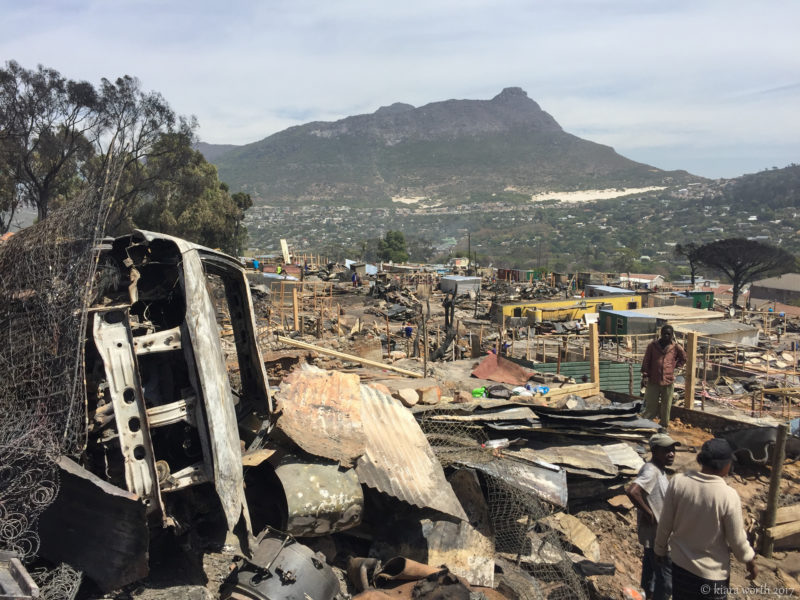
The people living in Imizamu Yethu had a difficult life to begin with. Originally the site for homeless squatters back in the 1980’s, the township has grown exponentially over the years and is now home to an estimated 60,000 people. Comprised of South Africans and African foreign nationals who came looking for work, the township is a series of shacks piled on top of shacks that reach up against the mountain, interlinked by a network of thin and dangerous alleys. Employment is low, crime is high, and life is hard.
And now, 15,000 people have lost everything. All their clothes and their shoes, their beds and blankets and towels. Their toothbrushes. Their school books and note pads and every day items for work. Their passports and ID documents. Their photographs of loved ones and the meagre collection of memories and belongings that identified their place in the world. Everything, evaporated into the air on a wave of heavy black smoke.
It is easy to feel hopeless in a situation like this – approximately 28% of the township went up in flames and you just don’t know where to begin.
The response from the broader Hout Bay community has been overwhelming. People have opened up their homes and their hearts and there has been an outpouring of generosity. Thousands of people donated food, clothes, money and time to show the people of Imizamu Yethu that they are not alone, and the outright kindness has been encouraging. I was one of many people in Hout Bay that volunteered, donating food and toiletries, chopping vegetables and making sandwiches for the soup kitchen, sorting piles of donated clothes and household items. While also in the middle of a 19-day Bahá’í fast, each activity had a certain energy to it, the most powerful of which was when we helped distribute clothes to more than 7,000 people.
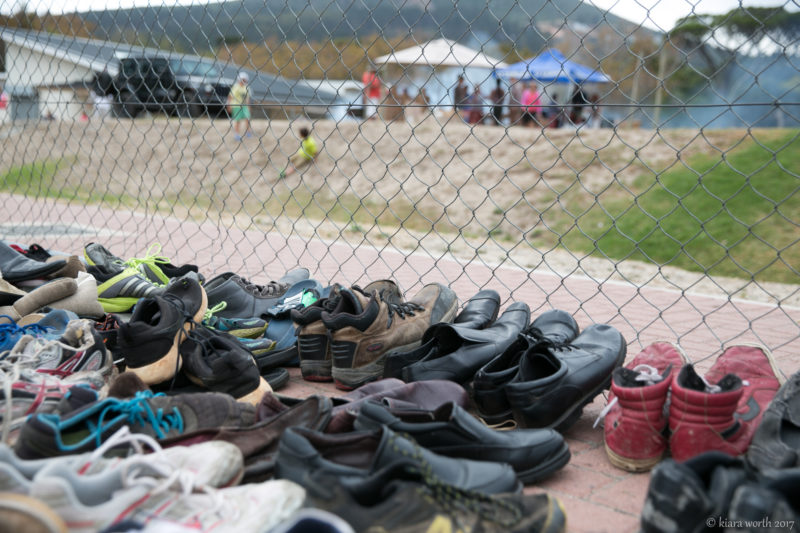
Everything took place on the sports field. Clothes and shoes had been sorted into genders and sizes and were then placed at various spots on the perimeter of the field, along with blankets and sheets and toiletries. People queued at the gate to register and depending on their family size and needs, they were allocated a number of plastic bags. They were then able to walk around the field, ‘shopping’ from the stacks of donated items and taking what they needed. When the bags were full, it was time to go. As items were taken, the volunteers would open up new boxes and replenish the stacks for the next group of people to come through.
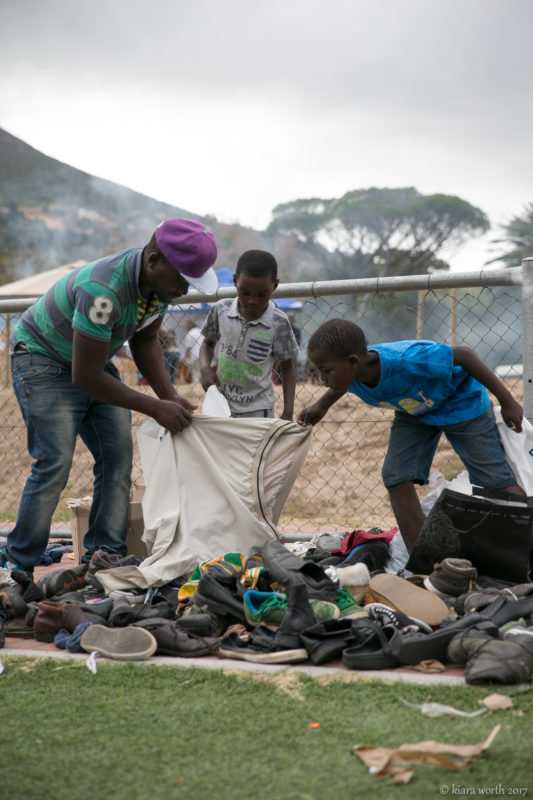
I was assigned to the children’s shoes section. I spent hours unpacking boxes, placing tiny little shoes side by side, and helping women with babies on their back find what they needed. It was both a wonderful and tragic task, seeing the relief on parents’ faces when they found what they needed, but also seeing the countless small children who seemed overwhelmed by the events of the days prior, reminding you just how deep a tragedy like this went.
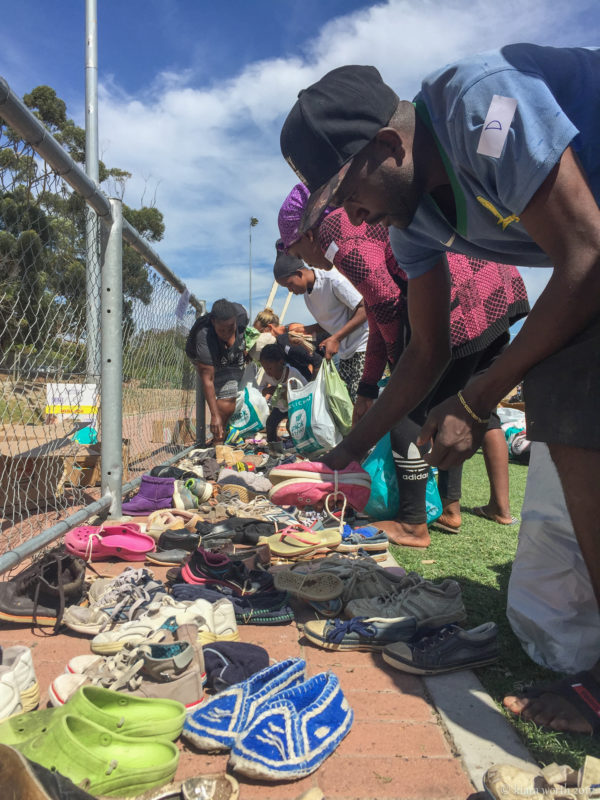
At one point I watched a man stop to reorganise his newly acquired items. He had one blanket, neatly folded into a small box. He had a pillow, which he wrapped carefully in a small plastic bag, and a stack of blank sheets of paper that he placed on top. He had found a pair of shoes and a few odd shirts. As he arranged his humble items, people came up to him asking if his blanket was available – no, he explained, this was his but there were more on the other side. I watched him, wondering what it was like to have all your possessions right there in front of you, everything you owned contained in a few small plastic bags. He looked tired and relieved and my heart began to crack just a little.
And the people just kept on coming.
By the late afternoon we were running low on stock and I began to realise that many shoes were missing their partners – there were shoes for only one foot and I couldn’t find their pair. At first I just put the lonely shoes in a separate box but as the supply dwindled, finding pairs became more important. I watched as a young boy with dusty legs and hardened fingers picked up a single white running shoe in good condition and he looked at me to ask where the other one was. When I told him I didn’t know, I watched the disappointment spread over his face, he looked around the pile, dropped the shoe in exhaustion, and walked on.
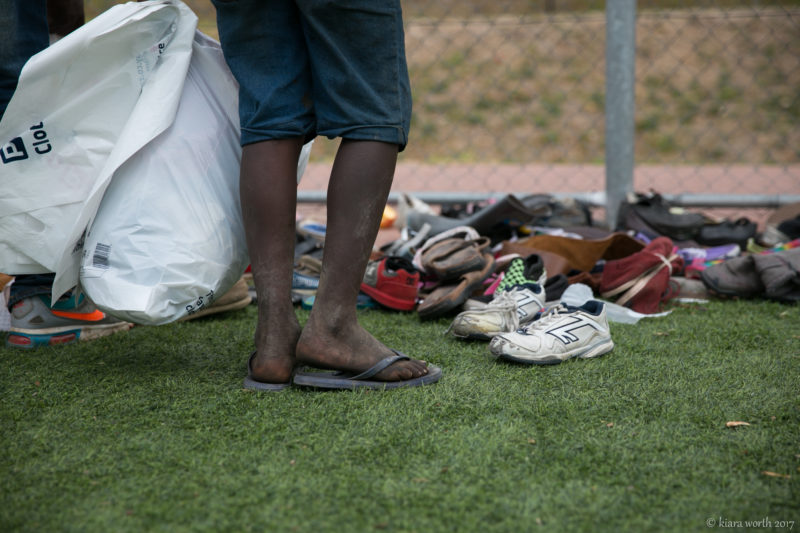
This moment was the greatest injustice of them all. Not only had this young boy had to suffer through the trauma of losing everything, in a life already difficult and unjust, but now in the midst of his loss, even this simple shoe was taken away from him. I started desperately looking through the boxes trying to find pairs, tears welling up in my eyes at every unsuccessful attempt, until I too gave up in exasperated exhaustion, my heart broken by the unfairness of it all.

I wept that night. I wept for that young boy and for those mothers, sleeping outside in the cold while I was in the comfort of my home. I wept for the growing divide that separates the wealthy from the poor and how even in these moments of generosity and kindness, that divide seems only to be reinforced. I wept for my own privilege, for the blessings that surround me on a daily basis purely because of the colour of my skin and the class I was born into.
I wept because this tragedy was completely avoidable – people shouldn’t have been living in these conditions to begin with. This was the result of decades of racism and classism, of inefficient governance and corruption, of poor decisions and blatant inequality. I wept for the socio-economic injustices that we have established and maintained, and for the disregard for human rights that we have perpetuated. I wept for all the tragedies that surround us and for the world we have created.
And just when I thought my heart would give up, I thought of how people came together to put the fire out, of the new houses that were already being erected amidst the ash, and of the small bag of Malawian beans that had been gifted to me in thanks for my help. I marvelled at the resilience and strength of the people who are so often overlooked in society and I was humbled to my very core.
[justified_image_grid ids=”3600,3598,3601,3602,3599,3606,3583,3596,3584,3593,3585,3604,3603,3597,3592,3591,3589,3587,3586,3605″]
Hout Bay is a suburb of Cape Town in South Africa. The area is frequently overcome by fires and if you would like to make a contribution to aid disaster relief, please feel free to support the admirable work of Thula Thula. If you would like to see more images of the fire, visit the website of the very talented photographer Justin Sullivan, who’s work is featured in this article.



